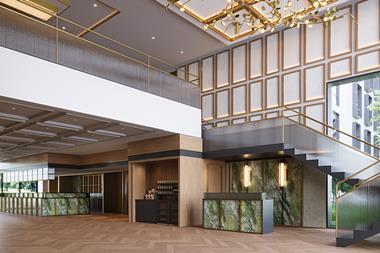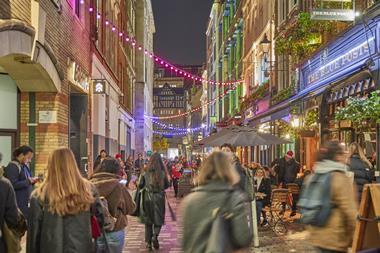Companies in the travel and tourism industry have been among the worst casualties of the pandemic. According to PwC, the 2020 figure for revenue per available room (RevPAR) was the worst since benchmarking began, while UK hotel occupancy rates in 2021 are forecast to be 55%.

This is a stark reality for an industry that enjoyed a strong decade of growth after the global financial crisis. For lenders, the question is: is this short-term pain symptomatic of a bigger problem and should we still lend against hospitality sector assets?
The permanent closures of properties such as the Hilton Times Square and Ace Hotel in Shoreditch have left lenders understandably more cautious about underwriting hotel deals. However, the industry has a resilient history. Contrary to market predictions, it bounced back quickly following the global financial crisis in 2008 and the 9/11 terrorist attacks.
We saw early glimpses of this resilience and pent-up demand when travel corridors opened last summer. This desire to travel has not abated and travel giant Tui recently reported a jump in holiday bookings from those over 50 in anticipation of a wider rollout of vaccines.
People will no doubt start travelling again as soon as it is safe to do so and occupancy rates will increase. And while the current climate and near-term is complicated by changing guidance around restrictions, the financing of hotel developments remains attractive and has attracted a good level of interest from lenders, because these assets will be delivered when the market has recovered.
The hospitality sector bounced back quickly following the global financial crisis and 9/11
The short answer is that we remain confident about hotels, as shown by the £74m development loan we recently agreed with Canary Wharf Group and edyn to finance development of a 279-room Locke aparthotel.
The longer answer is that we have confidence in the key elements of a good hotel: a strong brand, good location and relevant offer that meets the needs of the locale and people who visit it.
It is important to understand how a sponsor’s offer performs across these criteria to gauge how successful a hotel is likely to be, particularly given any long-lasting changes in how we live, work and play post-Covid.
The aparthotel sector is particularly attractive. As well as proving resilient in the past 12 months, allowing guests to socially distance if required, it is well placed to benefit from more widespread flexible working as a result of Covid-19.
In a Nationwide survey, almost 30% of prospective movers said they wanted more outdoor space and 25% said they wanted to get away from the “hustle and bustle of urban life”. If more people are happy to make longer but less frequent journeys to the office, we can expect demand for aparthotels and hotels near commercial districts such as Canary Wharf to rise.
Not all hotels will survive. Many are being kept alive by government schemes and lenders’ forbearing approach when they would have failed in a normal market. But when there are great sponsors with strong business plans, this is an exciting time to be a lender.
Matteo Milan is a principal in real estate finance at Cain International




























![Rob J Headshot[14]](https://d2bq2usf2vwncx.cloudfront.net/Pictures/380x253/8/5/5/1884855_robjheadshot14_607979_crop.jpg)

No comments yet